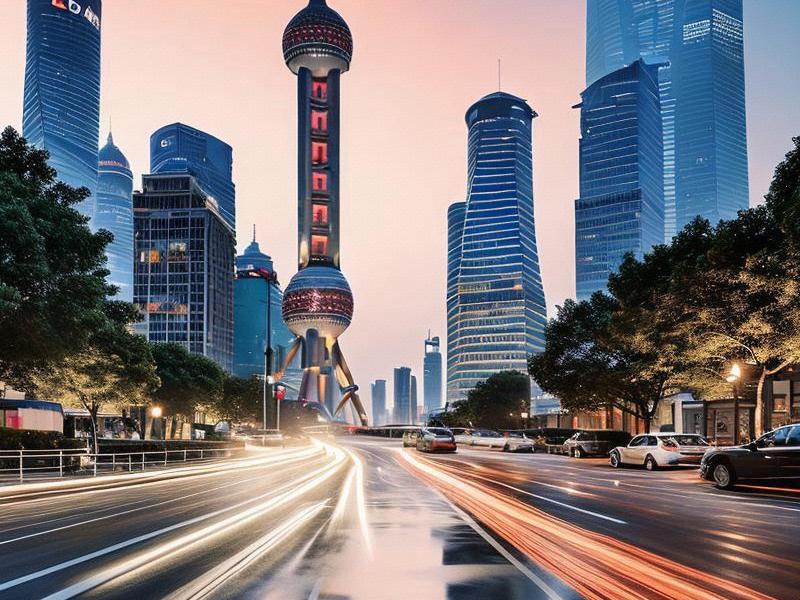This article delves into the multifaceted character of Shanghai, exploring its rapid urban development, economic prowess, rich cultural heritage, and ongoing transformation into a global center for innovation and creativity.

Shanghai, often referred to as the "Pearl of the Orient," stands as a beacon of China's modernization and a testament to the nation's extraordinary journey from a closed society to an open, globalized economy. This vibrant metropolis, with its skyline punctuated by the iconic Oriental Pearl Tower and the futuristic Shanghai Tower, is not just a city; it is a living, breathing symbol of China's aspirations and achievements.
The history of Shanghai is deeply intertwined with the broader narrative of China's economic evolution. Once a modest fishing village, Shanghai's strategic location at the mouth of the Yangtze River turned it into a bustling port and a gateway to the world. During the 19th century, under the unequal treaties imposed by Western powers, Shanghai was divided into concessions, which fostered a unique blend of Chinese and Western cultures. This historical confluence has left an indelible mark on the city's architecture, cuisine, and lifestyle.
In the 20th century, Shanghai emerged as a symbol of China's industrialization and modernization. The establishment of the People's Republic of China in 1949 marked a new chapter for the city. Despite facing challenges during the Cultural Revolution, Shanghai's resilience and adaptability propelled it to the forefront of China's economic reforms in the late 20th century. The opening up of China's economy under Deng Xiaoping's leadership in 1978 set the stage for Shanghai's meteoric rise.
Today, Shanghai is the largest city in China and one of the most populous urban centers in the world. It serves as the country's financial hub, with the Shanghai Stock Exchange being one of the largest in Asia. The city's port, the Port of Shanghai, is the busiest container port globally, underscoring its importance in international trade. Shanghai's economy is diverse, encompassing finance, manufacturing, technology, and services. The city is home to numerous multinational corporations, startups, and research institutions, making it a key player in the global economy.
爱上海同城对对碰交友论坛
One of the most striking aspects of Shanghai is its urban development. The city has undergone a remarkable transformation over the past few decades, with towering skyscrapers and modern infrastructure replacing much of the old. Pudong, once a rural area, has been transformed into a futuristic financial district, featuring landmarks such as the Shanghai Tower, the Jin Mao Tower, and the Shanghai World Financial Center. Lujiazui, the heart of Pudong, is a symbol of Shanghai's economic might and ambition.
Despite its rapid modernization, Shanghai has managed to preserve its rich cultural heritage. The Bund, a historic waterfront area, offers a glimpse into the city's colonial past with its array of Art Deco buildings. The Yu Garden, a classical Chinese garden, provides a serene escape from the hustle and bustle of city life. The city's museums, such as the Shanghai Museum and the China Art Museum, showcase its artistic and cultural treasures.
Shanghai's culinary scene is another testament to its cultural diversity. From traditional Shanghainese dishes like xiaolongbao (soup dumplings) and shengjianbao (pan-fried buns) to international cuisines, the city offers a gastronomic experience that caters to all tastes. The vibrant night markets and bustling food streets are a must-visit for food enthusiasts.
上海龙凤419手机
The city's commitment to innovation and creativity is evident in its thriving tech and creative industries. Zhangjiang Hi-Tech Park, often referred to as "China's Silicon Valley," is home to numerous high-tech companies and research institutions. The city's creative industries, including film, fashion, and design, are flourishing, with events like the Shanghai International Film Festival and the Shanghai Fashion Week attracting global attention.
Shanghai's transportation network is a marvel of modern engineering. The city boasts one of the most extensive metro systems in the world, providing efficient and convenient travel for millions of residents and visitors. The Maglev train, which connects Pudong International Airport to the city center, is a testament to Shanghai's technological prowess.
The city's government has been proactive in addressing environmental challenges and promoting sustainable development. Initiatives such as the construction of green spaces, the promotion of public transportation, and the implementation of energy-efficient technologies have made Shanghai a model for sustainable urban living.
上海贵族宝贝sh1314
Shanghai's role in global affairs is also noteworthy. As a member of the World Expo Organizing Committee, the city successfully hosted the 2010 World Expo, which attracted millions of visitors from around the world. The event showcased Shanghai's ability to organize large-scale international events and highlighted its commitment to global cooperation and cultural exchange.
The future of Shanghai is bright, with the city poised to continue its journey as a global leader in innovation, culture, and sustainability. The Chinese government's plans for the city, including the development of the Yangtze River Delta Integration, aim to enhance Shanghai's role as a regional and global hub.
In conclusion, Shanghai is a city that embodies the best of China's past and present. Its rapid urban development, economic prowess, rich cultural heritage, and commitment to innovation make it a unique and dynamic metropolis. As Shanghai continues to evolve, it remains a symbol of China's aspirations and a source of inspiration for the world.